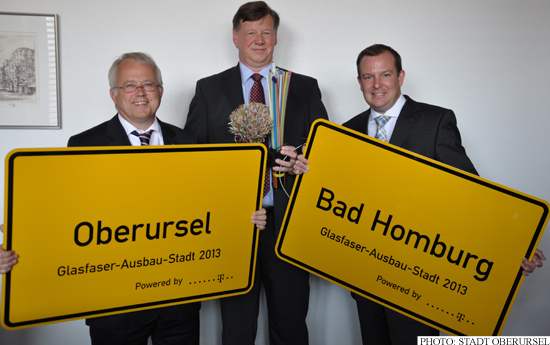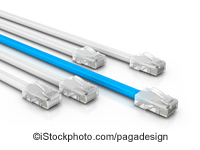
In September 2012 it was announced that Oberursel, along with Bad Homburg, had been selected by Deutsche Telekom to receive internet via fibre optic cables in 2013, meaning connection speeds of up to 200MBit/s for parts of the town.
The photo shows the mayor Oberursel, Hans-Georg Brum, with Klaus Lenz from Deutsche Telekom and the mayor of Bad Homburg, Karl Heinz Krug.
 The days of accessing the internet using an analogue (“dial-up”) modem or
The days of accessing the internet using an analogue (“dial-up”) modem or 



